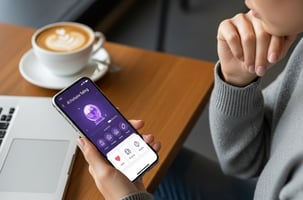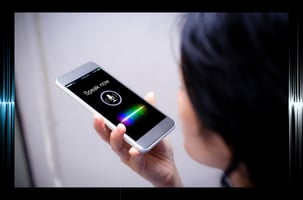2024 Paris Olympics: Where AI and Technology Take Center Stage

The 2024 Paris Olympics have come to a close, and one of the standout features of these Games was the significant role AI and technological advancements played. The International Olympic Committee (IOC) referred to AI and tech innovations as "Game Changers" in the world of sports, and they were right. In the lead-up to the Games, the IOC launched the "Olympic AI Agenda," predicting AI’s profound impact on sports and committing to its global integration. While preserving the core values of the Olympics, they embraced change, setting a responsible path for the future of AI in sports. Let's dive into how AI and technology shaped the 2024 Paris Olympics.
💪From Athlete Support to Accurate Judging: AI Made it Happen
- Digital Twins for More Efficient Operations
The Paris Olympics set out to address the climate crisis with a focus on sustainability. To ensure efficient operations, the event organizers, with Intel as the official AI platform partner, utilized "digital twins" to recreate stadium infrastructures digitally. This allowed real-time monitoring of energy consumption and pre-checks on power usage, camera placement, and accessibility, enhancing efficiency without the need for physical presence. - AI-Powered Smartphones on the Podium
Samsung’s Galaxy Z Flip6 Olympic Edition was a game-changer for athletes on the podium. Each athlete was equipped with this device, enabling them to capture their victorious moments with "victory selfies." The Galaxy AI, embedded in the phone, offered real-time translation and expert-level content editing, fostering communication and providing a more immersive experience for all participants. - Real-Time Chatbots for Quick Info
The Athlete365 app, which provided athletes with a wealth of support, included a chatbot service developed by France's Mistral AI in collaboration with Intel. With its RAG-based technology, athletes could easily access real-time event info, competition rules, and various services like sponsor product pick-up, 24/7. - AI-Powered Image Analysis for Faster Judging
Omega, the official timekeeping brand of the Olympics, introduced an AI-driven "computer vision" system to assist with precise timekeeping and judgments. The system analyzed athletes’ movements swiftly and accurately, improving the fairness and speed of decisions.

📺 Faster Broadcasting, Thanks to the Cloud
Since the first live broadcast of the Olympics in 1936, technology has come a long way. During the Paris Olympics, a staggering 11,000 hours of content were produced, with audiences enjoying ultra-high-definition broadcasts across various platforms. The immense volume of data was distributed globally via Alibaba Cloud's infrastructure. Cloud-based broadcasting not only improved operational efficiency and reduced costs but also maintained the sense of being live on-site.

NBC took it further, using generative AI to create highlight texts, voiced by an AI modeled after the voice of sports commentator Al Michaels. AI technology even ensured the correct pronunciation of athletes' names from diverse cultural backgrounds.
👷 AI at the Olympics: Enhancing Safety and Security
Safety was a top priority at the Games, with AI-based monitoring systems playing a crucial role. These systems actively monitored social media in real-time, blocking harmful content in over 35 languages to protect the well-being of 15,000 athletes and 2,000 officials.
In addition, AI-powered video surveillance enhanced public safety by detecting unusual activities and promptly alerting authorities to potential threats, ensuring a secure and protected environment throughout the Olympics.

Bespin Global: Driving Cloud Innovation with AI
Transform your business with cutting-edge AI and cloud solutions. Our expertise ensures you stay ahead in innovation. Contact Bespin Global today.
- AI and tech innovations at Paris 2024: A game changer in sport
- IOC takes the lead for the Olympic Movement and launches Olympic AI Agenda
- Three ways AI is changing the 2024 Olympics for athletes and fans
- Samsung Unveils Exclusive Galaxy Z Flip6 Olympic Edition, Powered by Galaxy AI, for Paris 2024 Athletes
- Omega’s AI Will Map How Olympic Athletes Win | WIRED
- The fake Al Michaels is surprisingly good in Olympics highlights – The Washington Post
- Innovations set to deliver cinematic experience during Paris 2024
- How France plans to use AI surveillance to keep Paris 2024 Olympics safe | Reuters
- Paris 2024: Smart Video Surveillance at the Olympic with Videtics | by Eticketing Co | Medium
- Paris 2024: Controversial AI-led video surveillance put to the test during Olympics


